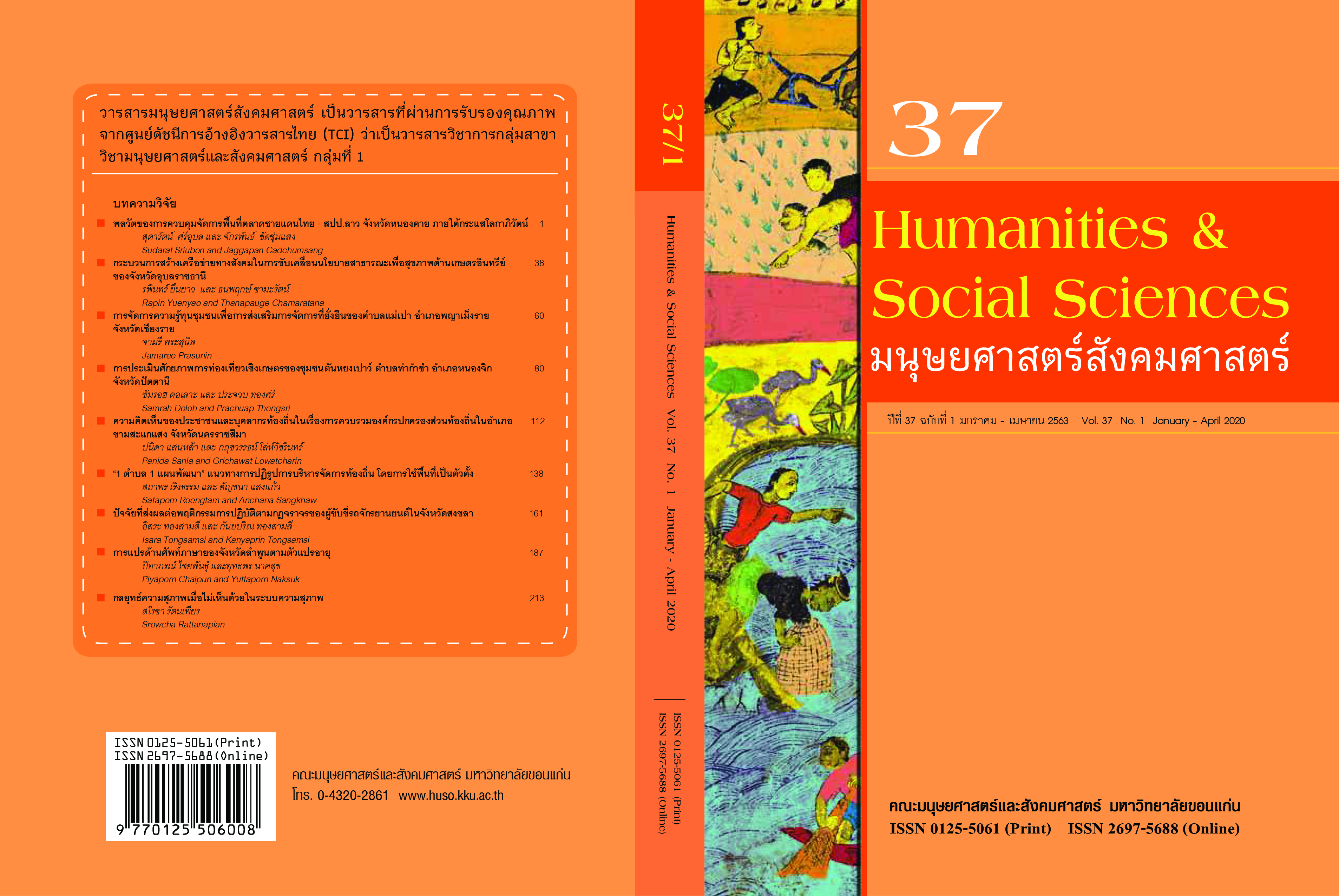กลยุทธ์ความสุภาพเมื่อไม่เห็นด้วยในระบบความสุภาพ
Thai Politeness strategies in disagreement in politeness systems
Keywords:
politeness, Thai politeness, disagreementAbstract
The paper examined politeness strategies in disagreement of 400 participants who are native Thais of mixed genders, 15-52 years of age in different politeness systems, including hierarchical, deference, solidarity and family face systems. Data Completion Tasks (DCT) was the major research tool to collect linguistic data when participants disagree. It was found that Thai participants prevalently employed bald on record strategies (directness) when they disagree in solidarity and family systems while a higher number of negative politeness and off-record strategies (indirectness) are observed in hierarchy and deference face systems with an aim to show deference to the speakers.
References
Brown, P., & Levinson, S. C. (1978). Politeness: Some universals in language usage. Cambridge: Cambridge University Press.
Goffman, E. (1967). Interactional ritual. New York: Doubleday.
Locher, M. A. (2004). Power and politeness in action: Disagreements in oral communication. Berlin: Mouton de Gruyter.
Muntigl, P., & Turnbull, W. (1998). Conversational structure and facework in arguing. Journal of Pragmatics, 29, 225-256.
Rees-Miller, J. (2000). Power, severity and context in disagreement. Journal of Pragmatics, 32(8), 1087-1111.
Scollon, Ron, Scollon, Suzanne Wong, & H.Jones, Rodney. (2012). Intercultural communication: a discourse approach. UK: Wiley-Blackwell.
Sornig, K. (1977). Disagreement and contradiction as communicative acts. Journal of Pragmatics, 1, 347-374.
Yang, M. C. (1945). A Chinese village. New York.



